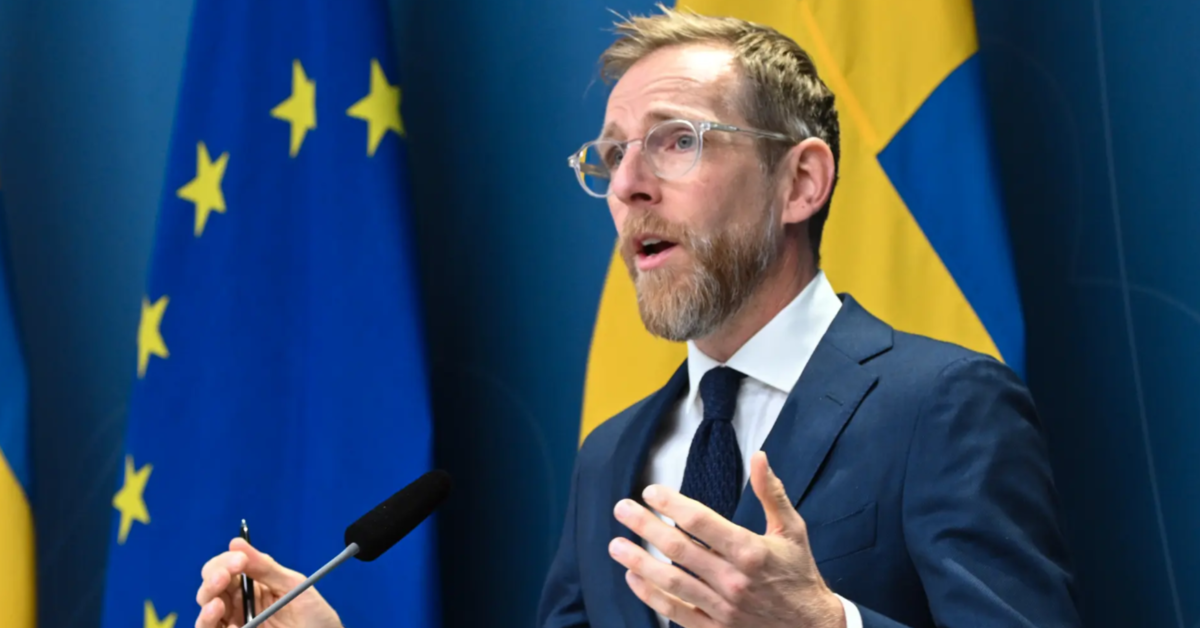At a Glance
- On February 14, Indonesia voted for its president, vice president, and national and provincial legislatures in the world’s biggest single-day elections.
- Prabowo Subianto, a controversial military man, has swept the initial count results of the polls for president, riding on the popularity of his campaign and the endorsement of outgoing President Joko Widodo, popularly known as “Jokowi.” Official results aren’t expected until March, but Prabowo has already declared victory and is on track to assume the presidency in October.
- Touted as a Jokowi 3.0 cabinet, a Prabowo presidency will likely see continuity on trade openness and foreign policy, but also growing democratic backsliding and greater legislative challenges in pushing ahead a coherent social and economic agenda.
Prabowo wins by a landslide
On Wednesday, February 14, over 204 million Indonesians went to the polls to elect a president, vice president, both chambers of its bicameral legislature, and local provincial-level legislatures in the world’s largest single-day election. This is the sixth legislative election for the world’s third largest democracy since its 1999 popular uprising against the then strongman President Suharto, who led Indonesia for 32 years.
A mostly foregone conclusion
Reliable but unofficial “quick count” ballots from four pollsters reflect a strong lead of 58% for Prabowo Subianto—the expected winner in a three-way race to succeed the outgoing term-limited President Joko “Jokowi” Widodo. His rivals, Anies Baswedan and Ganjar Pranowo trail at 25% and 17%, respectively. With Prabowo’s clear majority from early polls surpassing the 50% threshold, run-off elections scheduled for June are unlikely. Prabowo has already claimed victory and his administration is likely to take power in October, though neither Anies nor Ganjar have yet conceded, opting instead to wait for the official count which is expected by March 20. (See our previous primer for an in-depth analysis of the candidates.) Addressing his exuberant supporters, Prabowo vowed to form a “government team of best sons and daughters of Indonesia” that represented all Indonesians.
Despite his controversial past as a scandal-plagued military strongman in Suharto’s repressive regime, Prabowo—the current Defense Minister—enjoyed a huge lead over his rivals even before nominations began. A slick social media rebrand as a cuddly and humorous “grandpa” appealed to Indonesia’s TikTok youth. It also helped that the wildly popular and former rival Jokowi threw his star power behind Prabowo’s campaign.
In doing so, Jokowi—a presumptive kingmaker—had broken from his party, the Indonesian Democratic Party of Struggle (PDI-P) and its nominee, Ganjar. In an effort to secure his own political dynasty outside the PDI-P, Jokowi also maneuvered to place his eldest son, the 36-year-old Gibran Rakabuming Raka, as Prabowo’s running mate, thanks to a Constitutional Court ruling, despite the 40-year-old minimum age limit. Thus, with all three candidates campaigning on almost indistinguishable economic platforms in an election that was heavy on the economy, the combined popularity of Prabowo and Jokowi largely sealed the deal.
Jokowi 3.0 for the next five years
Continuity was the central plank of Prabowo’s campaign. And continuity—for better or for worse—can be expected under Prabowo’s presidency.
Economy and green development
Prabowo has promised to continue Jokowi’s decade-long vote-winning economic policies. This encompasses a sustained emphasis on foreign trade and investment, job creation, and infrastructure development. Also likely to continue is Jokowi’s nickel resource nationalism to move Indonesia up the industrial value chain. Global businesses would also rejoice from a reinvigorated pursuit of free trade agreements with Europe and a critical minerals agreement with the US. With the lingering trauma of skyrocketing food prices and the prospect of more to come, food security is a critical priority as well. Prabowo and Gibran both spoke extensively in pre-election debates of the need to build Indonesia’s food self-sufficiency.
Nusantara, the new capital city project in the forest of Kalimantan and the crown jewel of Jokowi’s legacy, will also be sustained. Its continuity was, in fact, likely the key Faustian Bargain that built the Jokowi-Prabowo alliance. Graft-plagued and ecologically challenged, the Nusantara project was a centerpiece of Jokowi’s mega-development infrastructure passions. But Nusantara also speaks to the climate anxieties of the highly vulnerable archipelagic nation: Jakarta, its sprawling capital on the overcrowded main island of Java, is sinking under its own weight—and amid rising tides.
This same climate anxiety informs much of Prabowo’s economic policy, which comes in contradicting shades of green and brown. The policy focus on boosting Indonesia’s biofuels will come at the expense of further deforestation to clear rainforests for palm oil plantations. Existing efforts to boost domestic nickel processing industries—a cornerstone of the global green energy transition—will require massive energy inputs which can only be met by coal. Despite the USD 20 billion in Just Energy Transition Partnership (JETP) financing, coal will remain a core segment of Indonesia’s energy mix. Indonesia remains the world’s largest exporter of coal and a fleet of coal power plants have been built to support the fledgling nickel industry. These efforts also feed back into Prabowo’s alleged vested business interests. Finally, Prabowo’s illiberal record of violence will also give pause to the safety and accommodation of local environmental activism.
All in all, the economic task ahead for Prabowo is unenviable. His electoral promise of 8% economic growth, let alone helping Indonesia level up to a high-income country, are likely beyond his control as Indonesia faces the headwinds of the global economy.
Foreign policy
Despite promises of continuing Jokowi’s deft balancing act of “free and active” non-alignment, Prabowo’s foreign policy could be colored by his anti-West antipathies. At one point banned from entering the US and Australia over his alleged human rights abuses, Prabowo retains a reciprocal disdain for the West and Western values. In the lead up to the elections, he could little help himself in making anti-American and anti-West jabs. And at the 2023 Shangri-La Dialogue in Singapore, Prabowo unveiled a derisory Ukraine peace plan that was almost universally panned as unrealistic and accommodating of Russian encroachment. Prabowo’s coziness to China and its investments has also raised the biggest eyebrows of international watchers.
These concerns, however, may prove overblown. Prabowo has repeatedly placated concerns with assurances not to deviate from Indonesia’s geopolitical non-alignment. As the nominal “big brother” of the wider Association of Southeast Asian Nations (ASEAN) bloc, Indonesia’s continued regional leadership in balancing between China and the West is crucial. A lack of Indonesian leadership in the region could imperil a unified ASEAN stance on the South China Sea as well as issues in the backyard, such as the Myanmar civil war. The opposite scenario, though, might be truer—a much louder Indonesian voice with more erratic personalist tones of Prabowo himself (if his off-the-trail Ukraine peace plan was instructive enough) might threaten alignment within ASEAN.
Fears around foreign policy are nevertheless relieved by analysis that Jokowi could well retain significant influence in Prabowo’s cabinet through the Vice President—his son.
Democracy and domestic politics
The return of Suharto’s ghost to Indonesian politics has been lamented as a tragic finale to Jokowi’s presidency. For a time, Jokowi was an icon of progressive pluralism. With a humble background as a son of a furniture salesman, his rise was remarkable amid a dominant political elite rife with patron-client relationships. His decade-long tenure was also marked by a boost for moderate Islam and the Republic’s secular values, but also growing allegations of democratic backsliding. Accusations have swirled around an increased used of coercion against opposition politicians, his defanging of the country’s anti-corruption institutions, a growing revival of military involvement in civilian politics, and political interference in the Constitutional Court, allowing his son to run for vice president despite not meeting the 40-year-old minimum age limit.
The recent Jokowi-Prabowo alliance is but the latest of Jokowi’s foreboding slide downwards. Prabowo’s right-wing nationalist machismo, more than any other presidential candidate, chafed against Indonesia’s pluralistic democratic ethos. It does not help that he retains proud links to the old Suharto regime, as both a former son-in-law of Suharto himself, and a then-military officer of Suharto’s feared paramilitary Kopassus (Special Forces) and Kostrad units, complicit in torture and extrajudicial killings across the archipelago and in East Timor. In his more recent of two previous failed bids for the presidency against Jokowi in 2019, his followers—inflamed by Prabowo’s demagogue rhetoric—staged deadly riots in Jakarta killing 6 and injuring over 200. In the realm of religious politics, Prabowo had in the past also flirted briefly with more hardline Islamic segments of society, but he has since largely stuck to the moderate Islamic base.
Critics are hence rightly pessimistic about the trajectory of Indonesia’s hard-won democracy, pluralism, and state-civil society relations.
What's next
Prabowo will form a government on October 20, 2024. But where the presidential elections have returned a clear winner, the broad plurality of Indonesia’s national legislature—where no party wins anything near a majority—will see an intense post-electoral horse-trading to form a big-tent coalition government. The cabinet will also see a mix of rival party appointments, much like how Prabowo was appointed Defense Minister under Jokowi, despite their fierce two-time rivalry.
Initial poll results suggest that Prabowo’s Great Indonesia Movement Party (Gerindra) has underperformed, securing around 13% of votes. It trails third place behind the incumbent ruling PDI-P (Ganjar’s party) and Golkar, a coalition partner of Gerindra.
The lack of a solid footing within the national legislature could be a harbinger of difficulties to come. Without Jokowi’s adroit diplomacy and soon under Prabowo’s abrasiveness, tenuous coalitional shuffles might encumber any effective social and economic development agenda that Indonesia has enjoyed in the last ten years. It also remains to be seen if this current Jokowi-Prabowo alliance is but a fair-weather one. A dyadic power struggle within the cabinet between the two titans of Jokowi and Prabowo will likely mark the next five years.
This content offers a high-level synopsis of current events. It is intended to provide information only, not opinion, and it is not representative of any specific EGA work.
See our previous primer for an in-depth analysis of the candidates. EGA will continue monitoring post-elections developments leading up to formation of government in October 2024. Stay tuned for more updates. For further advisory and insights on stakeholder communication and government relations in Indonesia and Asia-Pacific, reach out to Richard.Andrew@edelmanega.com to learn more.



